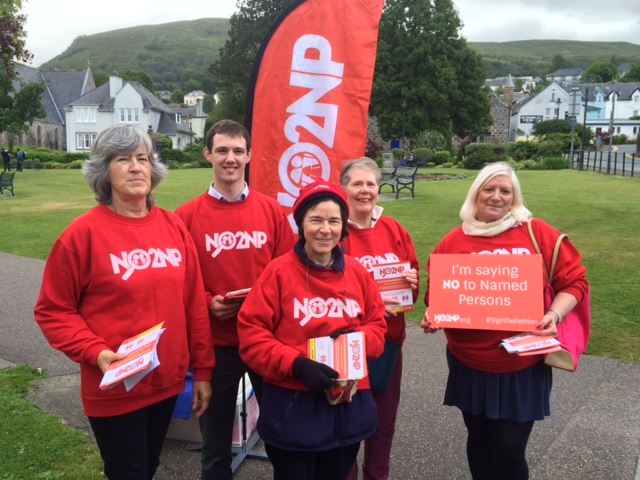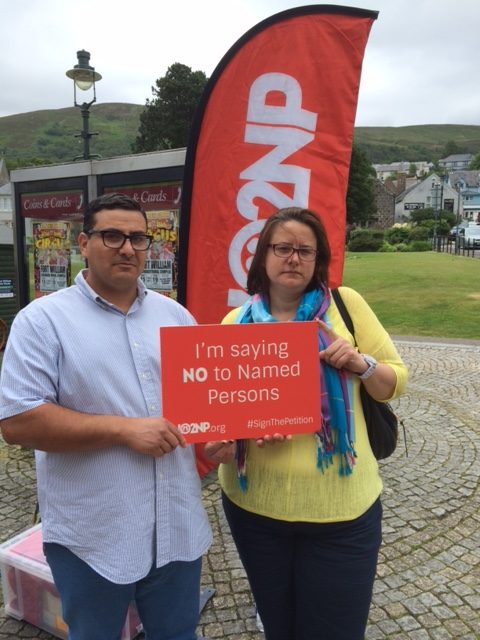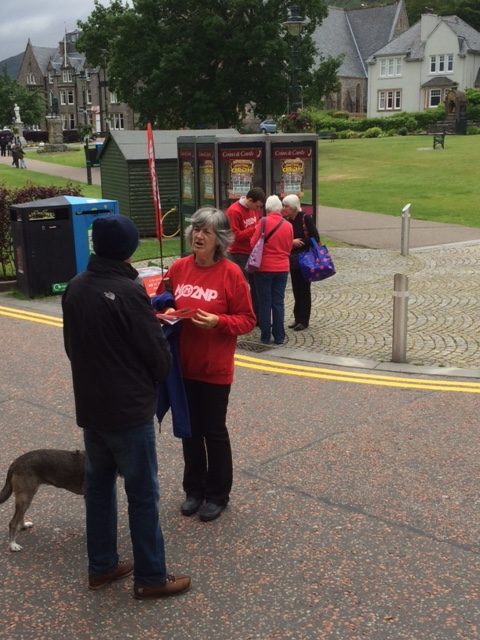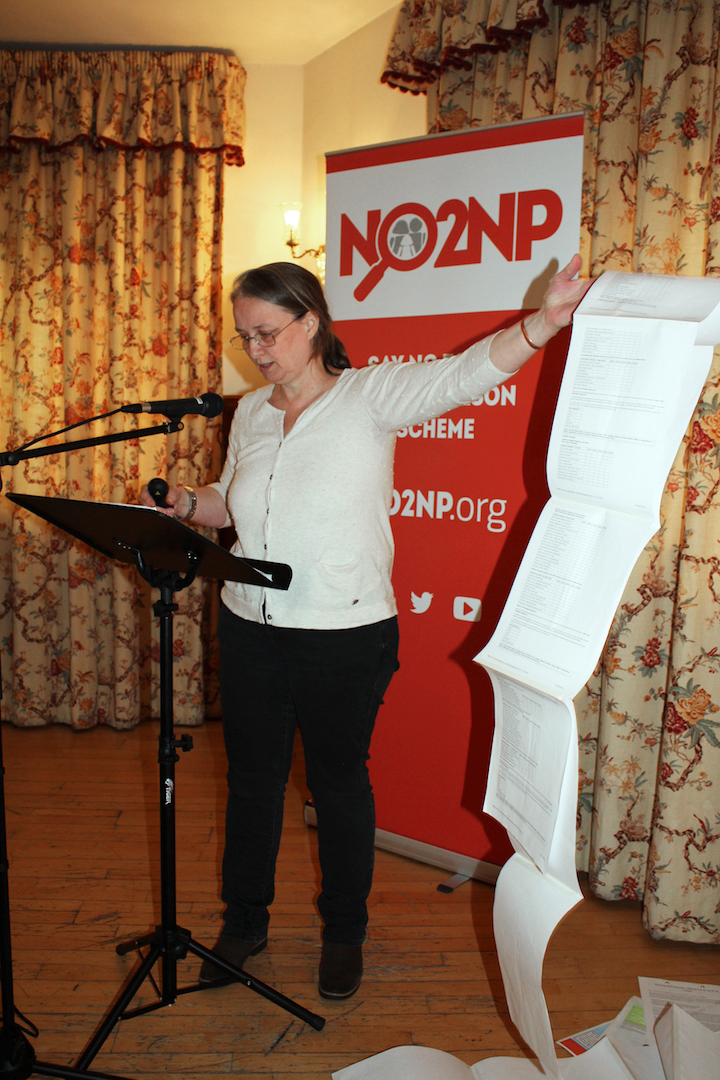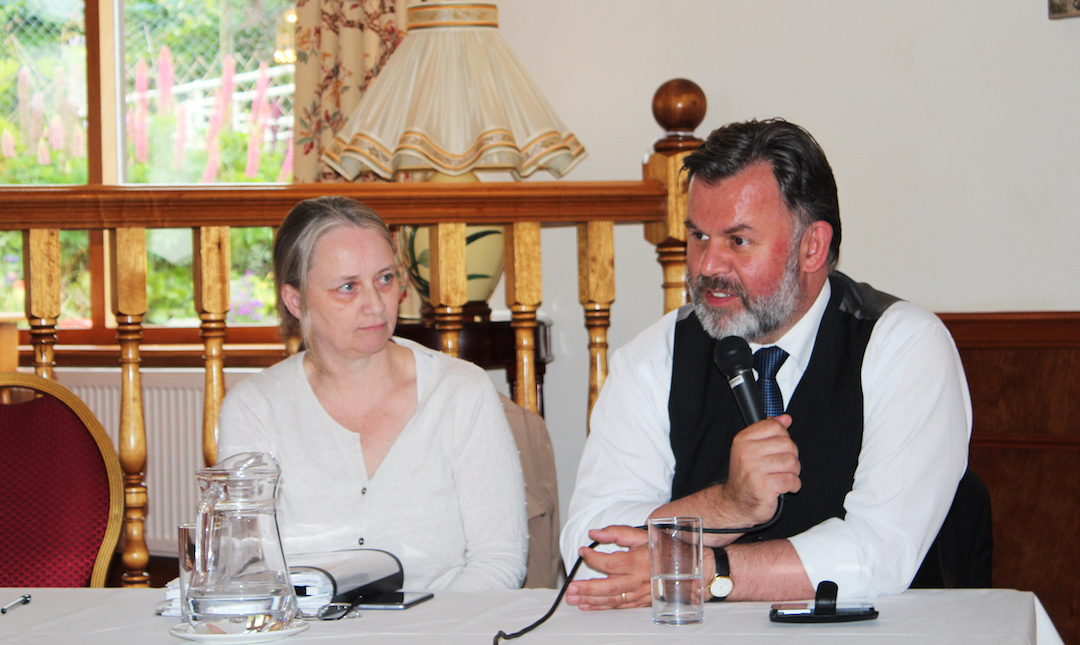Blog
Keeping you up to date on the progress of the Named Person scheme and the NO2NP campaign.
NO2NP ACTION DAY: FORT WILLIAM
Posted 10 years agoThe lauded Highland Pathfinder pilot of the Scottish Government’s controversial Named Person scheme has been the subject of much criticism in recent days within the Highland region itself, so it was going to be interesting to see what those who live and work in the region’s second largest settlement thought about it.
Almost immediately, the team found people who worked in the public sector – teachers, social workers, care workers – who were all against the scheme, described this week by the region’s Deputy Council leader as “intrusive nonsense”. The team were given similar responses by the general public, with one man describing it as “sinister” and another saying: “They’ve got to decide whether they’re going to let parents be parents”.
One couple had decided to move from the city to the beautiful Highland town because they wanted to raise their children in the peace and quiet of a rural community. But they were very much against the idea of their children having a state guardian, who would constantly be scrutinising their parenting skills and noting down any failings.
One lady took a bunch of flyers to distribute around her own rural community which was great! If you’d like to help get the message out in your community, please get in touch with us at volunteers@no2np.org
The team will be joined by some locals in Stornoway town centre this Saturday afternoon. If you live in Lewis, come and join them.
NO2NP ROADSHOW: FORT WILLIAM
Posted 10 years agoLesley Scott from TYMES Trust kicked off the latest Roadshow by exploding the myth that Highland Council’s much lauded Pathfinder pilot of the Named Person scheme is a great example of what the scheme passed by Holyrood will be like across the country.
Lesley pointed out that Pathfinder is significantly different from the legislation, particularly on parental consent to information sharing.
Part 4 of the Children & Young People (Scotland) Act 2014 states quite clearly that the functions of the Named Person are carried out “where the Named Person considers it to be appropriate in order to promote, support or safeguard the wellbeing of the child or young person” [emphasis added].
“There is no qualification to that statement,” said Lesley. “The Named Person scheme does not operate on or within parental consent, or even the consent of the child.”
John Swinney, Cabinet Secretary for Education, has admitted that “A number of authorities have been making progress towards some form of Named Person scheme, but the type of capacity and capability of the Named Person as envisioned in our legislation… was not in place.” So there we have it from the horse’s mouth!
Lesley continued: “These Named Person trials that the Cabinet Secretary has now rendered irrelevant are the same Named Person trials which have been championed so consistently in Parliament, and used as empirical evidence that the scheme now in legislation was not only effective but posed no threat to family autonomy or parental authority!”
But, she argued, compulsion was at the heart of this state guardian scheme, “which, rather than seeking to assist in accessing services, imposes state directed actions to meet state mandated outcomes. What’s more, parents having a different perception of the problem, not accepting all the concerns raised by the professionals or not engaging with the process are logged as ‘risks’ to their child’s wellbeing”.
Lesley evidenced her claim by referring to the Revised Draft Statutory Guidance issued in December 2015, which states: “The use of compulsion at an early stage may help to ensure compliance with interventions, and prevent wellbeing needs escalating. Parental capacity and willingness to change should be considered in order to assess whether the child’s wellbeing needs are likely to be met by voluntary support or whether a compulsory supervision order might be necessary.” [emphasis added]
Later, Lesley took everyone through some of the tools used by practitioners for gathering information, including:
- Parental capacity to provide well-being assessment: a pre-birth assessment tool used by midwives to record the prospective parents’ capacity to provide their unborn child’s right to be safe, healthy, achieving, nurtured, active, respected, responsible and included.
- On the trail with the Wellbeing Snail: a board game for primary-aged children to teach them what the state’s concept of ‘good wellbeing’ looks like. The cards include such statements as “You told the teacher that you were sad because your friend was unkind to you, Go forward 2 spaces” and “You didn’t join the new after school fencing club, Go back 2 spaces.”
- The ChildrenCount Surveys that have taken place in five council areas across Scotland with plans to extend this further.
She finished with the Highland Practice Model Guidance on information sharing. It states:
“When consent has not been given… legislation assists the practitioner to decide whether sharing should take place.” It continues: “When a practitioner who is not the Named Person or Lead Professional has concerns about a child’s well-being which indicate that while the child is not in need of protection he/she may be in need of additional support, these concerns and relevant information should be shared with the child’s Named Person or Lead Professional.” So no mention there of requiring parental or child consent.
As ever Nigel Kenny from The Christian Institute was there to talk about the judicial review of the legislation including some of the legal arguments on data protection and privacy.
A number of those present were back for an Action Day in Fort William the following morning.






